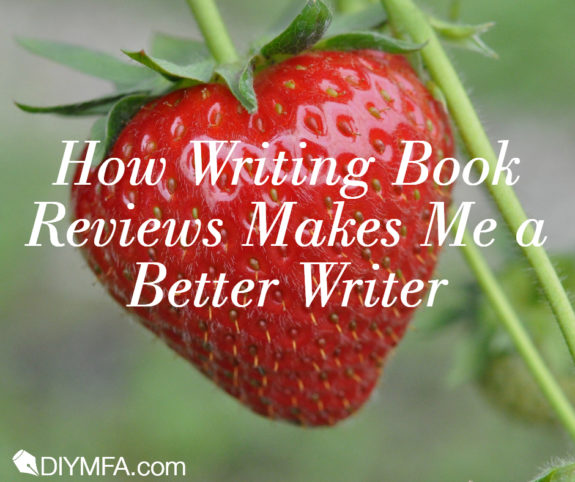In the summer of 2017, I attended ThrillerFest—the International Thriller Writers annual conference. A senior editor from Publishers Weekly (PW) was interviewed during one of the luncheons. He offered insights on the magazine’s book review process. I began to wonder what it would be like to review books for the publication, to have the privilege of reading stories before their release date and offer an opinion.
I approached the speaker when the session concluded, introduced myself, and told him I wanted to be part of his review team. He asked if I’d written reviews in the past. I hadn’t. But I told him about DIY MFA. I sent him some of my articles, and ultimately, he decided to give me a chance.
Only after writing the first review and going through PW’s prescribed process did I realize, not only did I have a wonderful chance to read the latest books in crime fiction, but I had also stumbled upon an amazing opportunity to improve my own writing.
How does writing book reviews make me a better writer?
The Succinct Format Prevents Passive Reading
PW’s style guidelines are specific. The word count is limited to 200. The bibliographic data must be formatted in a particular way. The body of the text, the actual review, has a standard format too. The opening must convey the book’s overall quality (outstanding, excellent, lackluster). Page citations are required for proper names and major plot points. The conclusion often emphasizes what worked with the book or if it fell short and the reasons why.
Because I have to substantiate my opinion, I’m no longer a passive reader. Writing it down, being forced to articulate my thoughts with precision, solidifies the learning experience in a way that being a passive reader wouldn’t achieve.
It Makes Reading a Priority
Stephen King says, “If you want to be a writer, you must do two things above all others: read a lot and write a lot. There’s no way around these two things that I’m aware of, no shortcut.”
This idea—to read to improve your writing—isn’t new. But life happens and, for me, things like reading are sacrificed to make room for other priorities. Being responsible to PW forces me to keep reading at the forefront.
It Makes Me Aware of Industry Trends
Another advantage to writing book reviews is that I can see what is trending in the mystery and crime fiction community beyond just reading about it online or in newspapers or magazines. I see a snapshot each time a new book arrives from PW. It helps me spot trends in the publishing industry.
Domestic suspense, unreliable narrators, and split narratives seem to be common these days. And this helps me understand what is selling and what is popular. I’ve also received books that I may not naturally select at the library or bookstore, and I have found some amazing authors because of it.
You Can Do This Too
The good news is that you don’t have to write for PW to review books and benefit from the same process. Here are a few ideas on how you can do it, too.
Write and compare your review.
Pick a book, write your review. Keep your review tight, force yourself to focus on the most relevant points. Then, go online, find PW’s review for the same novel, and see how your review compares. What’s the same? What’s different? What learning points can be gleaned?
If you belong to a book club or writers’ group, another option is to have members agree on a book and then each write a review. At your meetings you can take turns sharing and discussing your reviews. You can always do this virtually as well.
Post a review on social media.
If you have a blog or a Facebook page, you can write and post a review about the latest book you’ve read and encourage discussion. Sometimes bloggers are looking for content and welcome book reviews too. Or, even better, post a review on an online retailer’s website. Reviews help authors gain more visibility for their books. Meaningful, detailed reviews also help other consumers. This is a great way to help and give back to the writing/reading community.
Feel awkward about posting a negative review? You don’t have to share it, but you can still benefit from the review process. I often learn the most from books that don’t work for me.
Not sure where to start?
There are so many books in the marketplace these days, and it’s tough to choose which to read. I write crime fiction stories and often prefer to read and review books from this genre. But storytelling lessons can be learned from reading across genres too. I think the key is to find something that interests you.
What unconventional ways have you found to improve your writing? Which methods worked for you?

Stacy Woodson is a U.S. Army veteran. Her military memories are a source of inspiration for her stories. She made her crime fiction debut in Ellery Queen Mystery Magazine’s Department of First Stories in 2018. Her short fiction will also appear in EQMM this year, Malice Domestic’s Mystery Most Edible, Chesapeake Crimes: Invitation to Murder, Mickey Finn: 21st Century Noir, and The Beat of Black Wings: Crime Fiction Inspired by the Songs of Joni Mitchell. You can visit her at www.stacywoodson.com.







